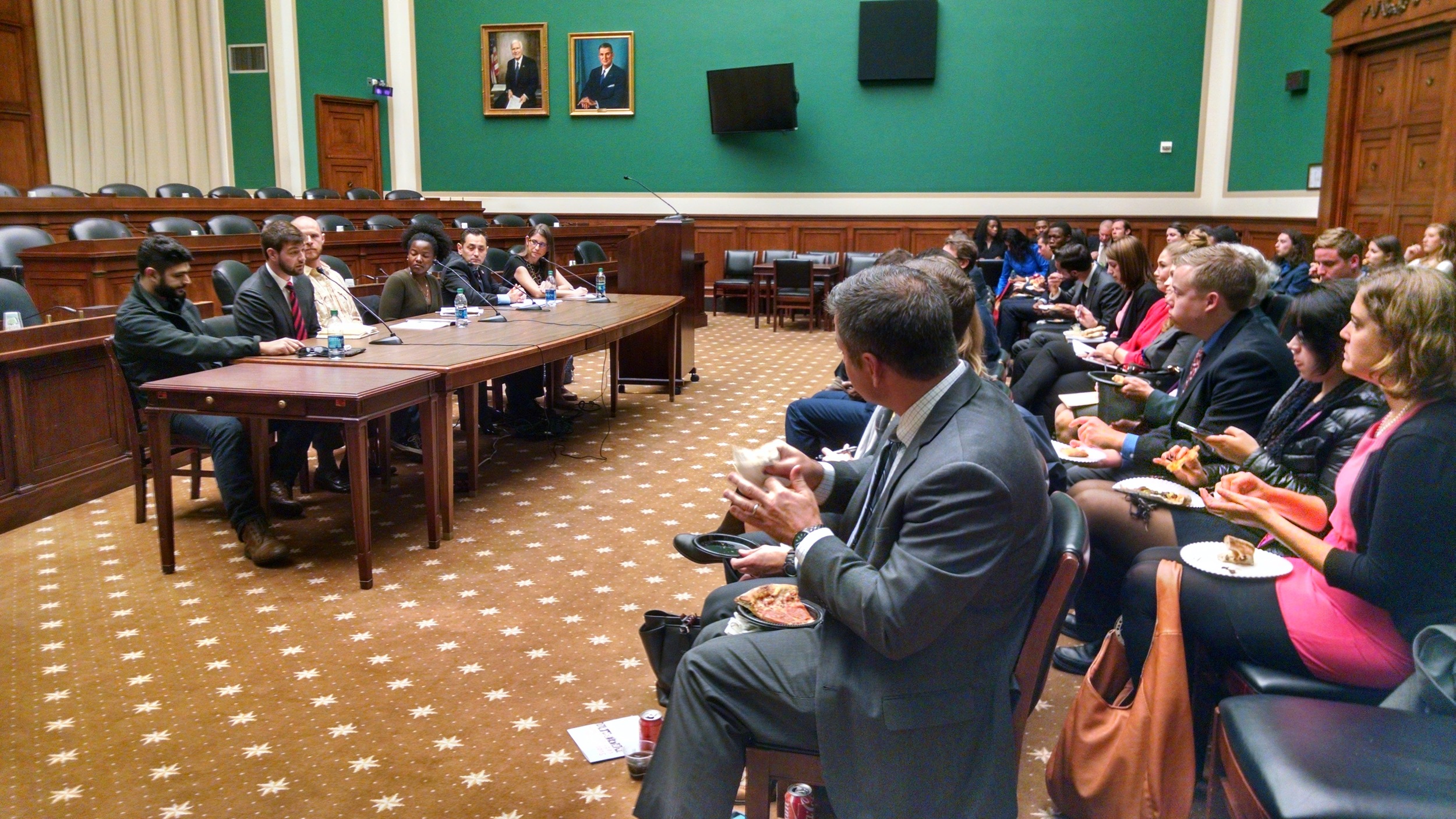Our weekly take on some of the biggest stories in startup and tech policy.
Obama’s Final SOTU. President Obama addressed Congress Tuesday evening in his seventh and final State of the Union, which included a few nods to the tech industry and startups, too. He remarked on some upcoming proposals from the White House, including a push to bring computer science education to more schools. The president also spoke of the country's rich history of innovation, as well as the challenges workers face in the new technology-driven economy. "In this new economy, workers and start-ups and small businesses need more of a voice, not less. The rules should work for them."
Encryption Debate Continues. A new bill was introduced in the New York State Assembly this week that would essentially disable strong encryption on all smartphones sold in the state. If passed, it would be the first state law requiring a “backdoor” for encrypted technologies—something that is not only constitutionally questionable, but also not technically feasible without undermining the security of the system as a whole. The tech industry has been pushing back against these “backdoors” at all levels of government. Just last week at a counterterrorism discussion between high-level federal officials and tech leaders, Apple CEO Tim Cook called on the administration to issue a statement defending the use of unbreakable encryption. The White House has yet to take an official position on encryption.
New Regs and Report for Ride-Sharing in NYC. The New York City Council will soon introduce new legislation regulating for-hire vehicles, the Wall Street Journal reported last week. The proposed legislation would require for-hire vehicle services such as Uber and Lyft to make their cars more accessible to the disabled, among other regulations that may address surge pricing. These new laws could be introduced as soon as next week, following today’s release of the highly anticipated traffic congestion report from the Mayor's office. The study, which examines the impact of new ride-sharing services on the city’s traffic, was commissioned by New York City Mayor Bill de Blasio last summer after proposals to cap the number of for-hire vehicles were defeated. We’ve just started digging into it, but among other things, it claims “For-hire vehicles are a vital part” of the city’s transportation mix and does not blame any one company for local congestion. We’ll be watching whether the report’s findings will influence the city council’s new legislation.
Big News for Autonomous Vehicles. 2016 is shaping up to be the year of the autonomous vehicle. At last week’s Consumer Electronics Show, a number of automakers announced their forays into this rising market. Then, on Thursday the Obama Administration unveiled plans to include $4 billion for autonomous vehicle R&D in the proposed 2017 budget. The Administration also promised to issue regulatory guidance for companies around compliance with safety standards within six months. The federal government has remained relatively hands off in this new market, but the Administration’s announcement this week represents a new level of involvement and a huge win for proponents of this growing technology.
The Size of the Sharing Economy. The results are in. A recent and first-of-its-kind poll conducted this fall found 44 percent of American adults have participated in the sharing and on-demand economy—that's over 90 million people who've booked a room on Airbnb, hopped in an Uber, or ordered groceries from Instacart. The poll also found that 22 percent of American adults have offered goods or services through these new platforms in exchange for income. And despite a spate of recent lawsuits over worker classification, the vast majority of these workers describe their experiences as positive.
The State of Computer Science. Code.org, a national organization dedicated to expanding computer science education, published its 2015 report, revealing K-12 student enrollment in computer sciences courses is growing nationwide. Today, 25 percent of U.S. schools teach computer science and programming and several major school districts including New York and Chicago have made recent pledges to the subject in every school. Computer science is also the fastest-growing AP course of the past decade.
Americans Online. Last week, the Federal Communications Commission released updated numbers on broadband access in the U.S. While the percentage of Americans with access to advanced broadband has improved over the past year, there are still 34 million Americans (or about 10 percent of the country) who lack access to broadband at sufficient speeds. While this report suggests improvements in the broadband ecosystem, more needs to be done to connect the 34 million currently cut off from broadband opportunity.












